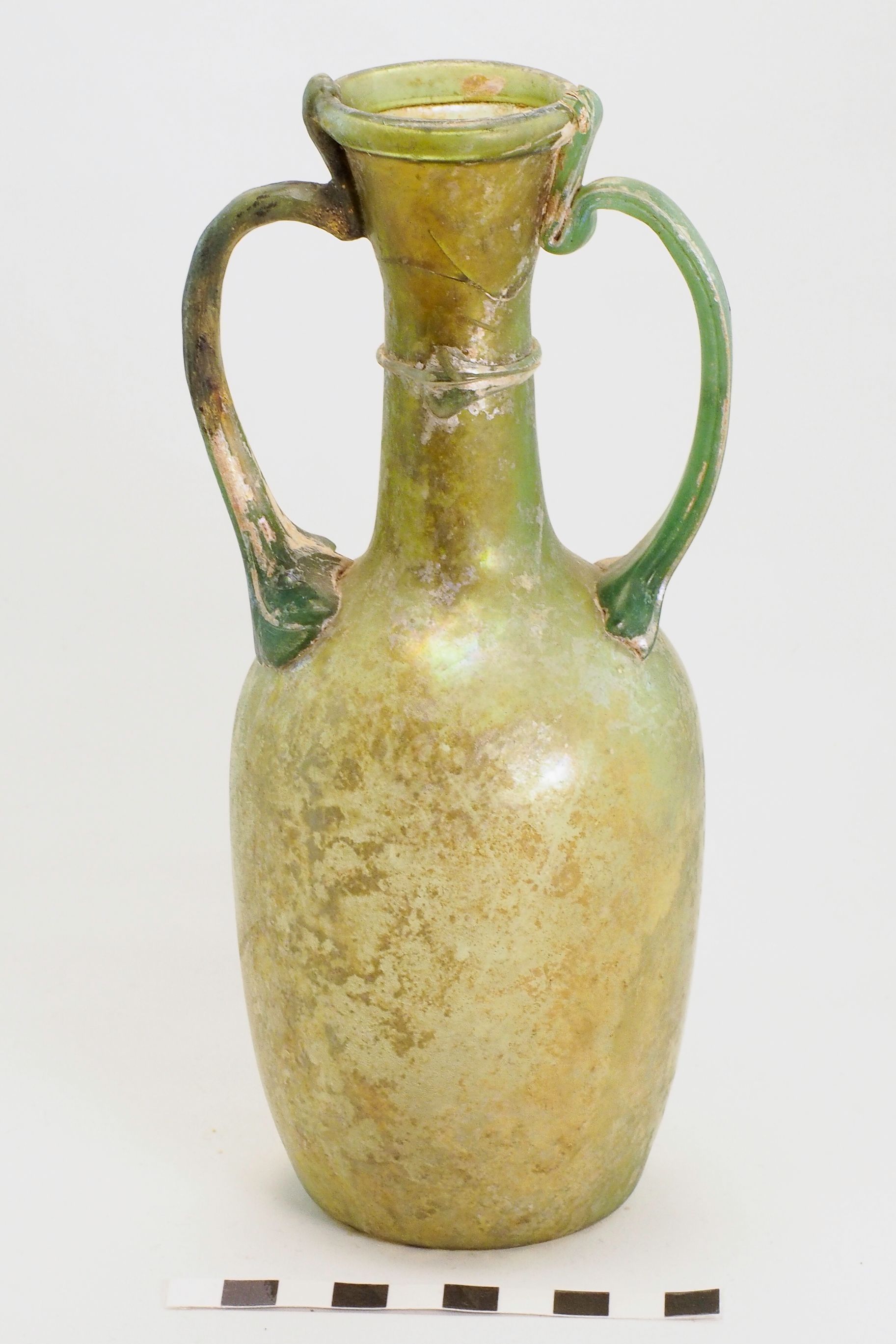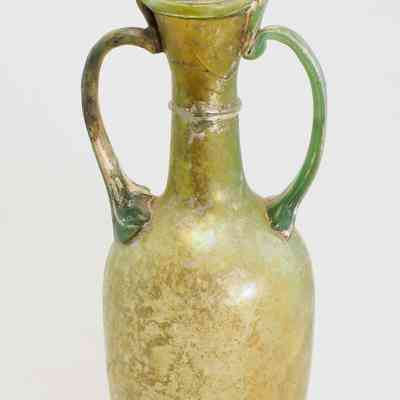Twin-Handled Amphora
Name/Title
Twin-Handled AmphoraEntry/Object ID
11NE-Mi34-172Description
The tubular rim was made by folding it outwards, up, then in. The neck tapers then descends with a single horizontal trail applied to the midpoint of the neck in just over one revolution. The neck then continues, widening slightly at the junction with the shoulders. Two identical handles oppose each other and were dropped onto the top of the shoulders, drawn up, in and down, attaching to the neck midway between the rim and the trailed ring. The handles were then pulled up over the neck, and attached on the outside of the rim. The shoulders slope downwards and the walls of the body bulge slightly before curving towards the base. The base is concave base with a pontil mark. The vessel is intact with a single stable crack to the neck and some iridescence.Use
TablewareContext
Amphoriskoi are smaller bottles with two handles, mimicking the shape of the larger ceramic amphorae. Some of their handles are not always suited for carrying, instead it was likely that they were designed for suspension. A large number of glass amphoriskoi from the Syro-Palestine region come from the Late Roman period (third to fourth centuries CE) where the vessels often appear with wound trails around the neck. There is also a striking similarity of body shapes of juglets, bottles, and amphoriskoi, suggesting that bubbles of the same shape were used to manufacture these vessel types.Made/Created
Date made
250 CE - 400 CETime Period
Roman Imperial, Late AntiqueEthnography
Culture/Tribe
Near Eastern - Syro-Palestine

